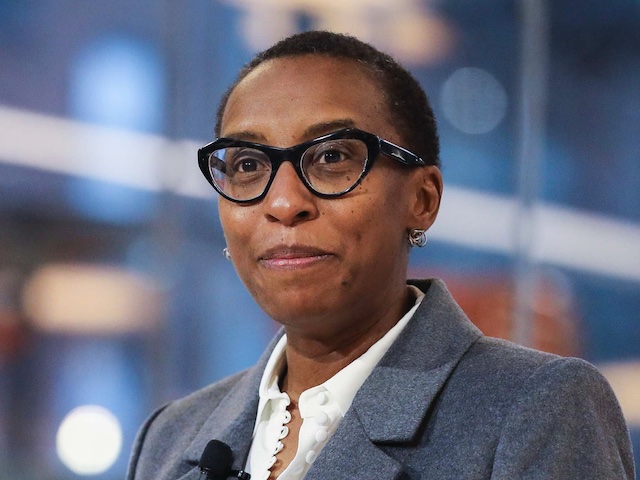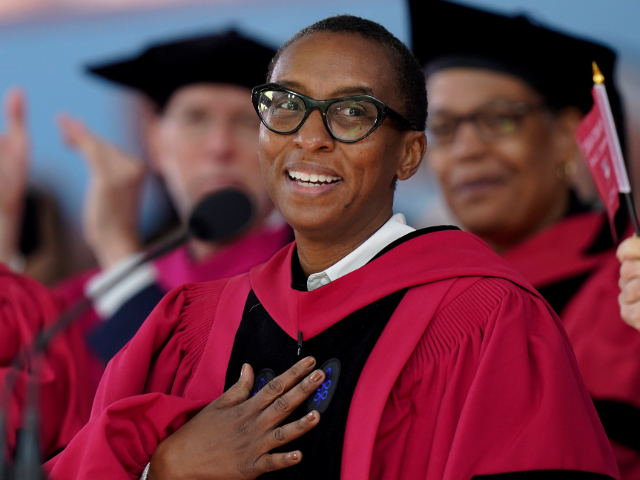The Harvard Corporation reportedly favored former Harvard President Claudine Gay over two internal candidates who both had administrative experience and far more extensive scholarship credentials. The Ivy League institution reportedly failed to conduct even a basic review of DEI candidate Gay’s academic work.
Harvard Corporation Senior Fellow Penny S. Pritzker and the presidential search committee favored Claudine Gay for her administrative expertise and didn’t even conduct a scholarly review of her work, a person familiar with the process told the Harvard Crimson.
Meanwhile, Tomiko Brown-Nagin, dean of the Radcliffe Institute for Advanced Study, and John F. Manning, dean of Harvard Law School, who had both administrative experience and more ample scholarship credentials, were reportedly overlooked.
Brown-Nagin had published two books and won the highest award in American History writing, while Manning argued nine cases before the U.S. Supreme Court and wrote more than 40 legal articles.
Gay’s scholarly record, meanwhile, was “comparatively thin,” the Crimson noted.
“The revelation about the search process gives insight on how the search committee managed to pick a president whose scholarship would later come under microscopic scrutiny for allegations of plagiarism,” the school newspaper added.
As Breitbart News reported, Gay’s Ph.D. dissertation was called into question with regards to plagiarism after the embattled Harvard president failed to stand up to unabashed antisemitism on campus in the wake of the October 7 Hamas terror attack against Israel.
To make matters worse, Gay also delivered a disastrous testimony before Congress, in which she declined to say whether advocating for the genocide of Jews is permissible on campus.
An investigation by the Harvard Corporation later found that Gay’s work contained multiple instances of “duplicative language,” resulting in the Ivy League university president having to make seven corrections across two articles and her Ph.D. dissertation.
The plagiarism allegations, first reported by conservatives, subsequently raised questions about the presidential search committee’s process in vetting candidates.
A person familiar with the search process told the Harvard Crimson that a more comprehensive review of Gay’s scholarship was not conducted, because she had experience as a senior administrator.
When choosing a president, universities almost always weigh both scholarship and administrative experience, but the search committee placed less weight on Gay’s academic track record.
While Gay wrote several articles on race and politics, her scholarship was far more limited compared to Brown-Nagin’s and Manning’s.
When the committee was searching for its 30th Harvard president, Manning had nine years of Harvard Law School administrative experience, while Brown-Nagin had four years of top administrative experience.
A person who has served on leadership search committees at several colleges and universities told the Crimson that the Ivy League university, like other schools, does not conduct extensive reviews and plagiarism checks on the scholarship of its serious contenders.
Harvard instead reportedly relied on the conclusions of previous search committees and tenure reviews. The 15-person presidential search committee consequently narrowed 600 nominations down to just one person, Claudine Gay.
Gay resigned on January 2, following antisemitism scandals at Harvard, a disastrous congressional testimony, and scores of plagiarism allegations being unearthed. Her six month tenure marks the shortest tenure in Harvard’s presidential history.
You can follow Alana Mastrangelo on Facebook and X/Twitter at @ARmastrangelo, and on Instagram.

